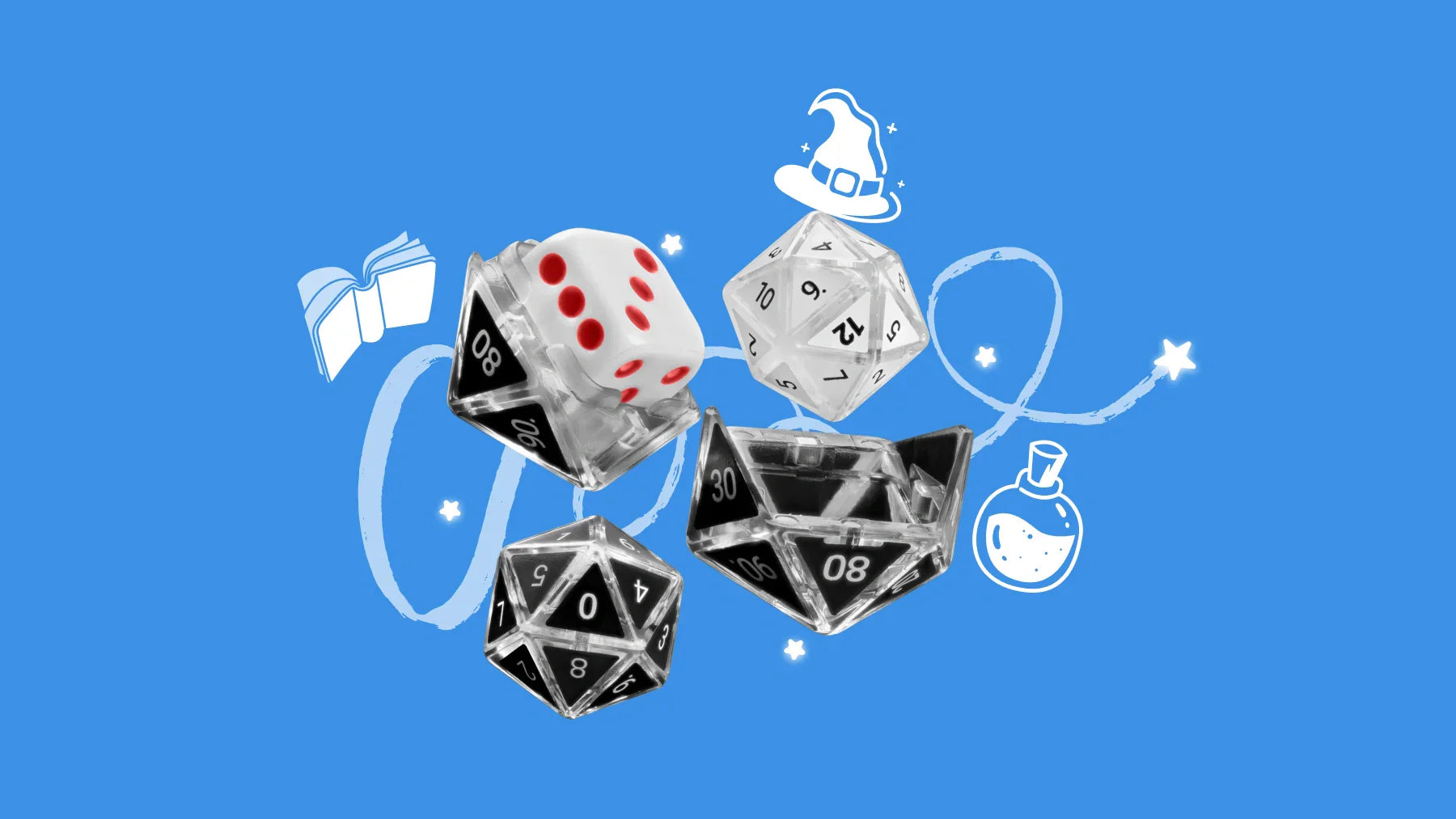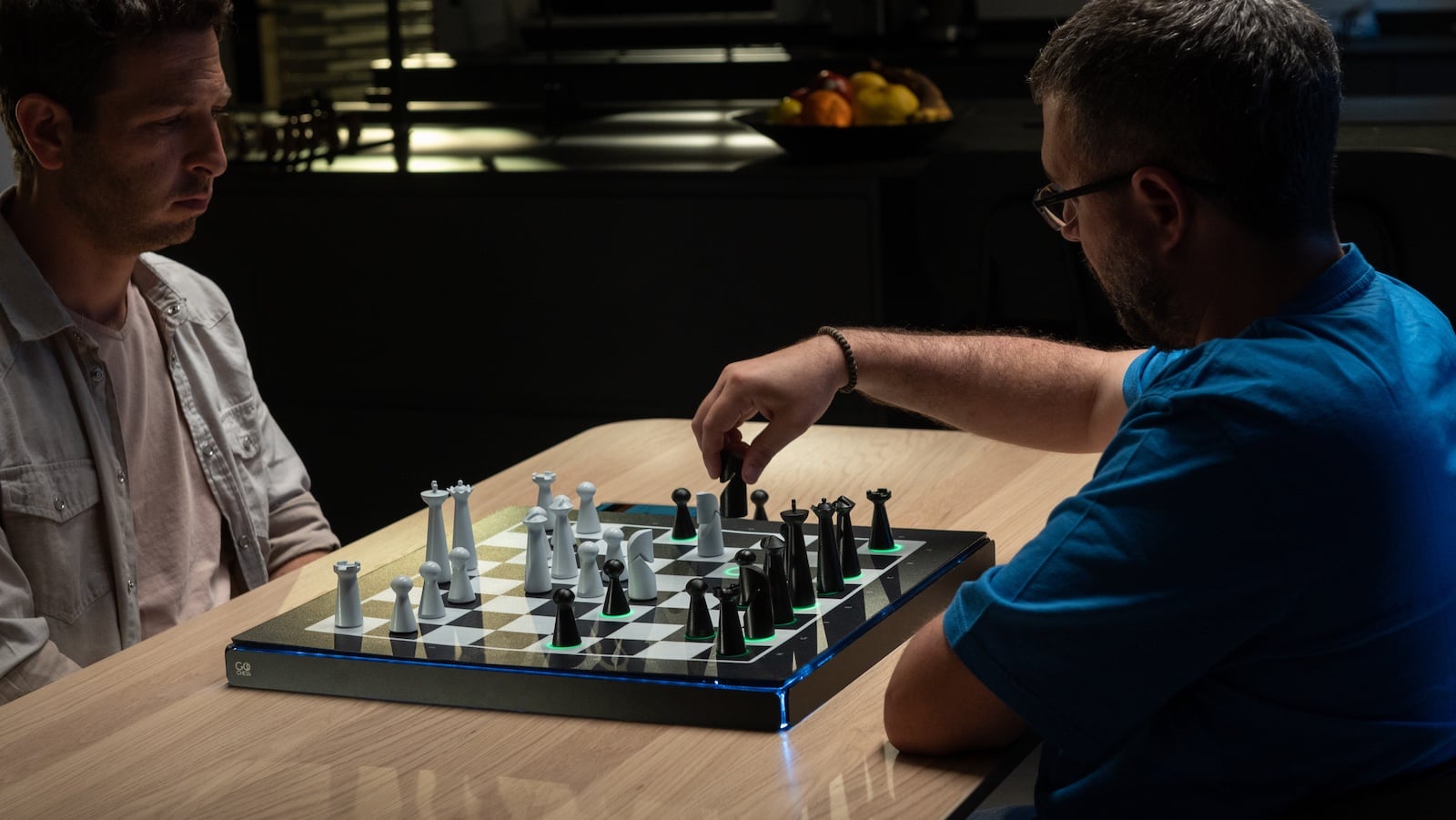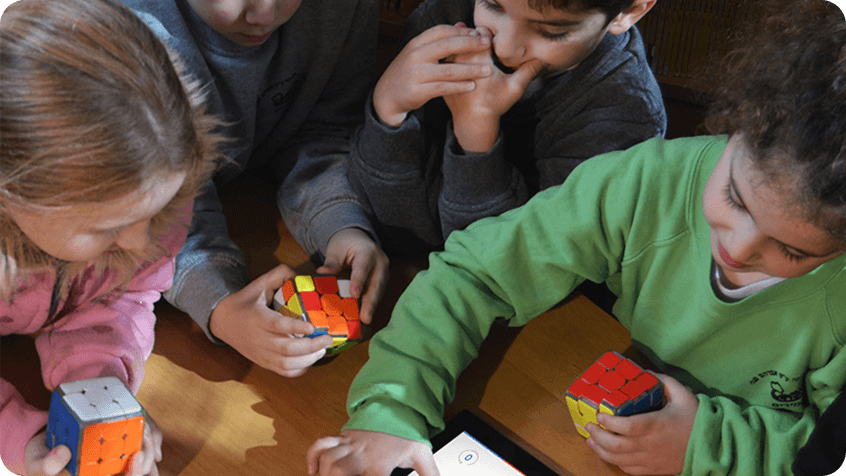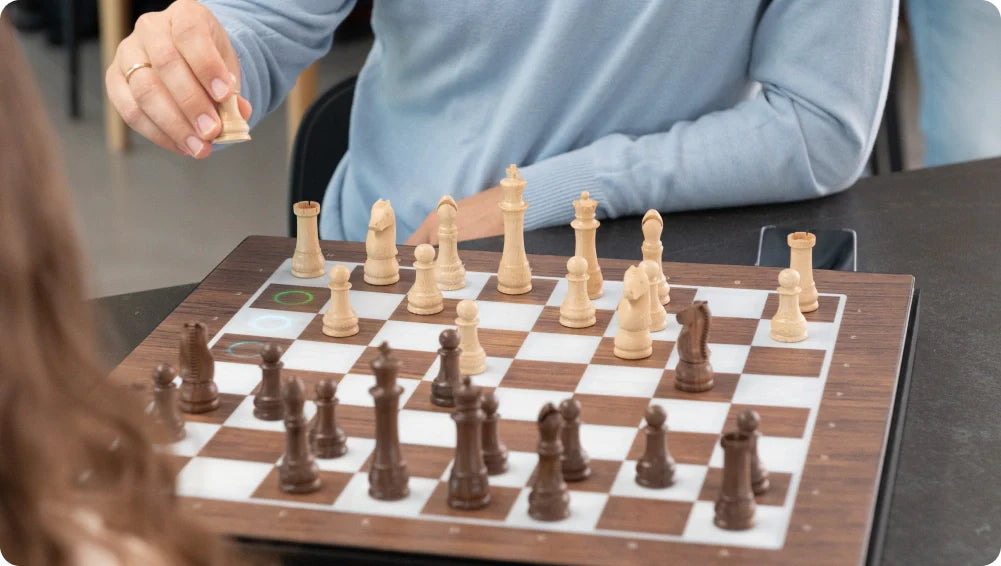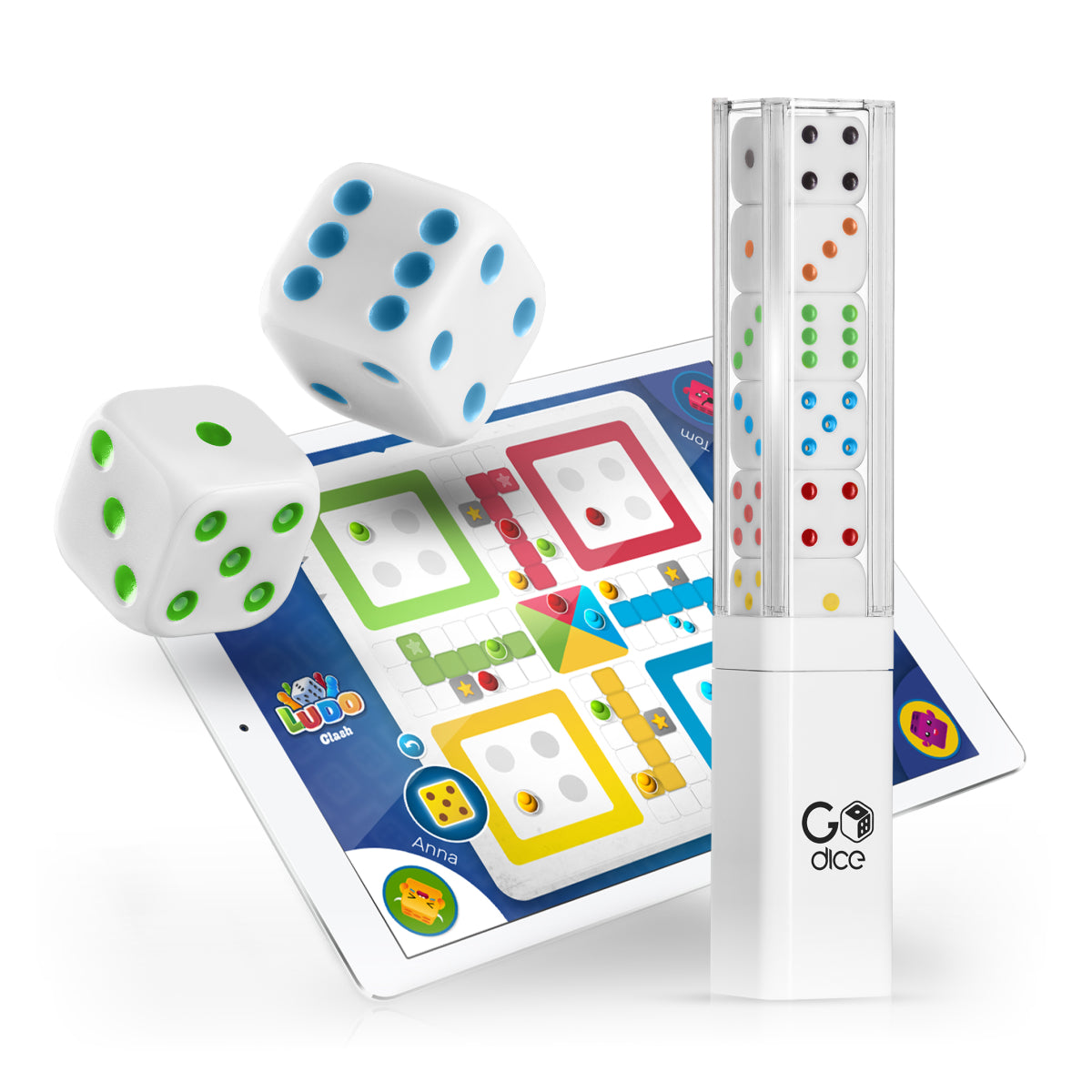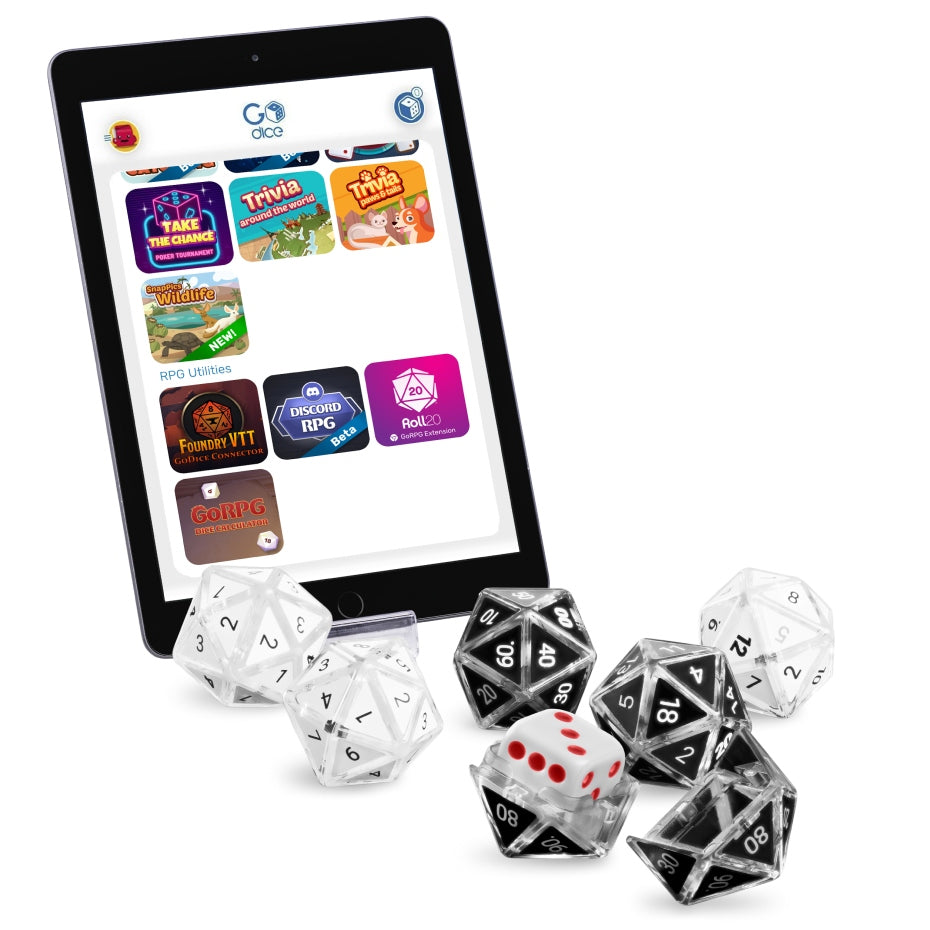Ready to roll the dice and dive into a world of intrigue, heroics, and immersive storytelling? RPG board games have been bringing friends together for adventures that transcend reality—and the genre has never been more exciting!
Whether you’re new to the world of RPGs or a seasoned adventurer, this article will guide you through the top-rated RPG board games, offer tips for choosing the right one, and even introduce you to game-changing dice that can bridge the gap between traditional tabletop play and online platforms.
Top 15 RPG Board Games Ranked
1. Gloomhaven

Theme and Story: Set in a gritty fantasy world, players take on the roles of mercenaries navigating through treacherous dungeons. The game features a branching campaign that evolves based on player decisions, allowing for a highly personalized narrative experience.
Key Gameplay Mechanics: Gloomhaven employs card-driven tactical combat where players manage their abilities through a hand of cards. The legacy-style progression means that choices made in one session can affect future gameplay, creating a sense of continuity and consequence.
Player Count & Average Playtime: Designed for 1-4 players, sessions typically last between 90 to 150 minutes.
Pros: The game is celebrated for its deep strategic elements and immersive storytelling, making each session feel like a new chapter in an epic saga.
Cons: New players may find the complex rules daunting, and the setup time can be lengthy.
Pro Tip: Enhance immersion by using high-quality RPG dice and consider creating custom house rules to tailor the experience to your group's preferences.
2. Dungeons & Dragons: The Board Game (Various Editions)

Theme and Story: This board game distills the essence of the classic tabletop RPG into a more accessible format. Players embark on thrilling adventures within modular settings that can be rearranged for varied gameplay experiences.
Key Gameplay Mechanics: The game emphasizes cooperative play, utilizing dice rolling for combat outcomes and exploration as players navigate dungeons together.
Player Count & Average Playtime: Suitable for 2-5 players with an average playtime ranging from 60 to 120 minutes.
Pros: It serves as an excellent introduction to RPG mechanics, allowing newcomers to grasp fundamental concepts without overwhelming complexity.
Cons: Compared to traditional D&D campaigns, it offers less flexibility in character development and narrative depth.
3. Betrayal at Baldur’s Gate

Theme and Story: Set in the haunted city of Baldur’s Gate, players explore the environment, uncovering secrets until one player turns traitor, leading to a suspenseful showdown.
Key Gameplay Mechanics: The game features tile placement for exploration and hidden roles that create tension as players try to deduce who among them is the betrayer.
Player Count & Average Playtime: Accommodates 3-6 players with an average playtime of about 60 minutes.
Pros: High replay value due to its variable scenarios and the element of surprise keeps gameplay fresh and engaging.
Cons: The randomness inherent in certain mechanics can sometimes overshadow strategic planning.
4. Call to Adventure
Theme and Story: Players craft their own legendary hero by making narrative choices while facing challenges inspired by classic fantasy literature. This game emphasizes storytelling as much as gameplay mechanics.
Key Gameplay Mechanics: Utilizing card drafting alongside rune-casting mechanics, players build their character's story arc through choices that influence their abilities and outcomes in challenges.
Player Count & Average Playtime: Designed for 2-4 players, with games lasting between 30 to 60 minutes.
Pros: Its simplicity combined with beautiful artwork makes it visually appealing while remaining accessible to new players.
Cons: Some may find it lighter than traditional RPGs, lacking the depth that seasoned gamers might seek.
5. Descent: Legends of the Dark

Theme and Story: Set in the rich universe of Terrinoth, this sprawling fantasy campaign is enhanced by an app that guides storytelling and scenario management, providing a dynamic gaming experience.
Key Gameplay Mechanics: Players engage in app-guided scenarios featuring dice-based combat and cooperative gameplay elements that require teamwork to overcome challenges.
Player Count & Average Playtime: Supports 1-4 players with lengthy sessions averaging between 120 to 240 minutes.
Pros: The game boasts stunning miniatures and innovative app integration that enhances immersion and storytelling depth.
Cons: It can be pricey, and some players may not appreciate the reliance on an app for gameplay management.
6. Shadows of Brimstone

Theme and Story: This unique blend of Wild West themes with horror elements allows players to battle otherworldly monsters while exploring procedurally generated dungeons filled with danger and treasure.
Key Gameplay Mechanics: Features include dungeon crawling, character progression through experience points and cooperative play that encourages team strategies against formidable foes.
Player Count & Average Playtime: Accommodates 1-6 players with sessions typically lasting between 90 to 180 minutes.
Pros: The game's modular design allows for high variability in gameplay experiences, keeping each session fresh and exciting.
Cons: Requires significant storage space due to its numerous components, along with considerable setup time before each session can begin.
7. Arkham Horror: Third Edition

Theme and Story: In this cooperative game set in H.P. Lovecraft's universe, investigators face Lovecraftian horrors while racing against time to uncover mysteries threatening their world.
Key Gameplay Mechanics: Scenario-driven gameplay features branching storylines influenced by player decisions, creating a rich narrative tapestry woven through each session's events.
Player Count & Average Playtime: Designed for 1-6 players with an average playtime ranging from 120 to 240 minutes depending on scenario complexity.
Pros: The immersive narrative combined with atmospheric design draws players deeply into its world of cosmic horror.
Cons: After multiple plays, some may find the gameplay repetitive due to similar scenarios or mechanics resurfacing frequently.
8. Kingdom Death: Monster

Theme and Story: A dark co-op survival game where players work together to build a settlement while facing horrific monsters in a nightmarish world filled with danger at every turn.
Key Gameplay Mechanics: Players engage in tactical combat while managing resources effectively; legacy progression allows characters to develop over time through victories or defeats against monstrous foes.
Player Count & Average Playtime: Suitable for 1-4 players, with sessions lasting between 90 to 180 minutes per encounter, depending on the chosen scenarios.
Pros: It offers unparalleled depth in narrative development and character customization; the miniatures are intricately designed, adding aesthetic value and functional gameplay elements.
Cons: It is extremely expensive compared to other board games, and its complexity may deter casual gamers from seeking simpler experiences.
9. HeroQuest

Theme and Story: A classic dungeon crawler where heroes embark on quests battling monsters while searching for treasure within a modular board setup that changes with each adventure undertaken by the party.
Key Gameplay Mechanics: Features include dice rolling for combat outcomes alongside cooperative exploration elements that encourage teamwork among players as they navigate dungeons filled with traps and treasures alike.
Player Count & Average Playtime: Accommodates 2-5 players with average sessions lasting between 60 to 90 minutes depending on quest length chosen at the start-up phase of playthroughs.
Pros: Nostalgic appeal resonates strongly among veteran gamers; straightforward mechanics make it easy for newcomers to grasp quickly without feeling overwhelmed by complex rulesets often found in modern RPGs.
Cons: Limited replay value may arise due largely to fixed quests, which could lead seasoned groups to feel like they’ve exhausted all possibilities after several plays through initial content offered within the box set itself.
10. Spirit Island

Theme and Story: In this cooperative strategy game, players embody elemental spirits defending their island home from invading colonists seeking resources at any cost—reflecting themes of nature versus civilization throughout gameplay dynamics.
Key Gameplay Mechanics: Each spirit possesses asymmetric abilities tailored towards different strategies; cooperation among spirits is essential as they work together using unique powers against encroaching threats posed by colonization efforts.
Player Count & Average Playtime: Designed for groups of up to four participants; typical playtime ranges from ninety minutes up to two hours based upon player familiarity with the ruleset.
Pros: Offers intense strategic depth requiring careful planning ahead while also providing opportunities for creative solutions during encounters against invaders.
Cons: A steep learning curve may discourage casual gamers unfamiliar with complex strategy games; initial rounds can feel overwhelming until everyone understands how best to utilize their spirits’ strengths effectively.
11. Star Wars: Imperial Assault

Theme and Story: Players choose sides between Rebel Alliance forces or Imperial troops within iconic Star Wars universe settings—engaging in missions filled with tactical combat scenarios reminiscent of beloved film series’ narratives.
Key Gameplay Mechanics: Tactical combat combined alongside campaign progression allows groups to either work cooperatively against AI-controlled enemies or compete against one another depending upon the chosen mode before commencing play.
Player Count & Average Playtime: Suited for two to five participants; average duration falls between sixty-to-one hundred twenty minutes depending upon mission complexity selected beforehand.
Pros: Immersive experience particularly appealing to fans franchise—integrating familiar characters alongside lore into gameplay enhances overall enjoyment factor immensely.
Cons: Requires substantial setup time before actual play begins, which could deter some potential participants looking for quick-start options instead.
12. Mage Knight

Theme and Story: Players assume roles of powerful mages exploring vast open-world environments while completing various quests—blending elements of traditional RPG deck-building mechanics seamlessly throughout the experience.
Key Gameplay Mechanics: Combines deck-building along exploration strategies requiring thoughtful planning ahead if one hopes to succeed in missions undertaken during course gameplay.
Player Count & Average Playtime: Designed to accommodate one to four individuals; average session length varies significantly—ranging anywhere from two hours up to four hours based on the complexity involved.
Pros: Offers deep solo/co-op experiences, allowing flexibility tailoring approach based upon individual player preferences.
Cons: Highly complex ruleset may overwhelm newcomers with unfamiliar genre conventions—dedicated time investment necessary to truly appreciate nuances present within the design.
13. Frosthaven

Theme and Story: Standalone sequel Gloomhaven featuring new characters/scenarios/mechanics expanding upon the original’s success—players continue their journey exploring a rich world filled with challenges awaiting discovery.
Key Gameplay Mechanics: Legacy-style storytelling combined with tactical combat similar to predecessors ensures continuity across sessions while introducing fresh elements to prevent stagnation.
Player Count & Average Playtime: Supports four participants; typical duration mirrors predecessor—averaging ninety-to-one hundred fifty minutes per encounter.
Pros: Builds upon greatness established earlier entry, providing fans the opportunity to delve deeper into their beloved universe once again.
Cons: Still retains a steep learning curve and may intimidate those unfamiliar core concepts established in previous iterations.
14. Pathfinder Adventure Card Game

Theme and Story: Cooperative card game set in the Pathfinder universe featuring quests and monster battles—players work together utilizing customized decks to navigate various challenges presented throughout the campaign.
Key Gameplay Mechanics: Deck-building along with skill checks drive progression forward, ensuring each encounter feels unique and dynamic depending upon choices made during the setup phase.
Player Count & Average Playtime: Accommodates one to one-to-six individuals; average duration falls between sixty-ninety minutes based upon the scenario selected beforehand.
Pros: Ideal quick-fix RPG experience catering for those seeking taste genre without the lengthy commitment required in typical tabletop sessions.
Cons: Lacks depth found in full-fledged RPG systems, limiting long-term engagement potential experienced gamers might desire.
15. Pandemic: Legacy

Theme and Story: Players unite to tackle global pandemics, advancing through a story-driven campaign where decisions impact future rounds—The narrative unfolds dynamically depending on actions taken during previous encounters.
Key Gameplay Mechanics: Legacy mechanics evolve rules/components over time, ensuring freshness across multiple plays and encouraging repeat engagement among groups willing to invest energy into unfolding saga together.
Player Count & Average Playtime: Designed support for four participants; average length is approximately sixty minutes per session, dependent upon progress made throughout the campaign journey undertaken collectively.
Pros: An engaging storyline coupled with tense gameplay creates a compelling atmosphere, fostering collaboration among teammates striving to succeed against odds stacked heavily against them.
Cons: Limited replayability arises once the entire campaign is, thus diminishing the overall value perceived long-term unless willing to restart the entire journey anew.
Enhancing Your RPG Experience with Online RPG Platforms
Enhancing your RPG experience has never been more exciting, thanks to the integration of online RPG platforms and innovative tools like smart Bluetooth dice sets. These platforms allow players to enjoy the tactile satisfaction of physical dice while benefiting from the convenience of digital mechanics. Here’s how you can elevate your gaming sessions with smart Bluetooth dice and popular online RPG platforms.
Bridging Physical and Online Gameplay
Smart Bluetooth Dice Technology: Smart Bluetooth dice sets are a groundbreaking development in tabletop gaming, enabling players to roll physical dice while automatically tracking results on various online platforms. This unique feature creates an immersive experience that captures the essence of traditional RPGs while leveraging the advantages of modern technology. With these connected dice, you can enjoy real-time feedback and automatic calculations, making gameplay smoother and more engaging.
Compatible Online Platforms:
Roll20: As one of the most popular virtual tabletop platforms, Roll20 seamlessly integrates with smart Bluetooth dice sets such as the GoDice’s RPG Bundle or D20 Connected. Players can roll their physical dice and see instant results reflected in their online game, eliminating the need for manual calculations. This integration allows everyone to focus on storytelling and strategy without getting bogged down by arithmetic.
Foundry VTT: Known for its extensive customization options, Foundry Virtual Tabletop allows players to connect their smart Bluetooth dice directly to the platform. This connection enables real-time tracking of rolls and outcomes, enhancing gameplay by combining tactile rolling with digital efficiency.
Discord: For groups that prefer voice chat during their sessions, Discord provides an excellent platform for gameplay alongside smart Bluetooth dice. Players can roll their physical dice while engaging in conversation, making it easy to maintain social interactions and excitement during gameplay.
Tabletop Simulator: This platform offers a hands-on approach to RPGs, allowing players to create their own gaming environments, complete with custom maps and character sheets. The community has developed numerous tools to integrate various RPG systems, making it a versatile choice for creative groups looking to enhance their experience with smart Bluetooth dice.
Benefits of Using Smart Bluetooth Dice Sets
- Real-Time Feedback: Smart Bluetooth dice provide instant feedback on rolls, eliminating the need for manual calculations or adjustments during gameplay. This feature is particularly beneficial in complex scenarios where multiple modifiers may apply.
- Enhanced Immersion: The tactile experience of rolling physical dice combined with digital tracking enhances player immersion. Each roll feels significant, contributing to the excitement of critical moments within the game.
- Versatility Across Systems: Whether you’re playing Dungeons & Dragons, Pathfinder, or any other RPG system, smart Bluetooth dice adapt to your chosen platform, making them a versatile tool for all types of games.
- Sleek Design and Functionality: These premium dice often feature colorful lights that indicate results and a compact form factor that makes them easy to transport and use in various settings.

Tips for Choosing the Right RPG Board Game
- Understand Your Group's Preferences
Before diving into the vast world of RPG board games, take time to discuss with your group what themes and mechanics resonate with everyone. Some players prefer high-fantasy settings, while others enjoy sci-fi or horror themes. Knowing your group's preferences will help narrow down choices and ensure everyone is excited about the game.
- Consider Complexity and Learning Curve
Different RPGs come with varying levels of complexity. If your group is composed of newcomers, opt for games with straightforward rules and shorter playtimes to avoid overwhelming them. Conversely, if you have experienced players, consider more complex systems that offer deeper mechanics and richer storytelling opportunities.
- Look for Replayability
Replayability is crucial in RPGs, as many sessions can feel repetitive if the game lacks variety. Look for games that feature modular components, branching storylines, or expansion packs that can introduce new elements to keep gameplay fresh.
- Evaluate Player Count and Session Length
Different games accommodate different player counts and have varying session lengths. Ensure that the game you choose fits your group's size and schedule. Some games work well with large groups, while others are better suited for smaller teams or solo play.
- Incorporate Smart Dice Technology:
Integrating smart Bluetooth dice sets into your RPG experience can revolutionize gameplay. These innovative dice not only provide the tactile satisfaction of traditional rolling but also connect seamlessly with popular online platforms like Roll20 and Foundry VTT. For instance, GoDice enhances your gaming sessions by automatically calculating rolls and outcomes, saving valuable time during play.
Conclusion
RPG board games combine the best of storytelling, strategy, and social interaction, creating experiences that resonate long after the final dice roll. Whether you’re braving the dungeons of Gloomhaven or navigating the treachery of Baldur’s Gate, there’s an adventure for every kind of player.
And don’t underestimate the power of great dice—our connected RPG dice sets are here to make your campaigns smoother, more immersive, and undeniably magical. Ready to level up your game? Let’s roll!



